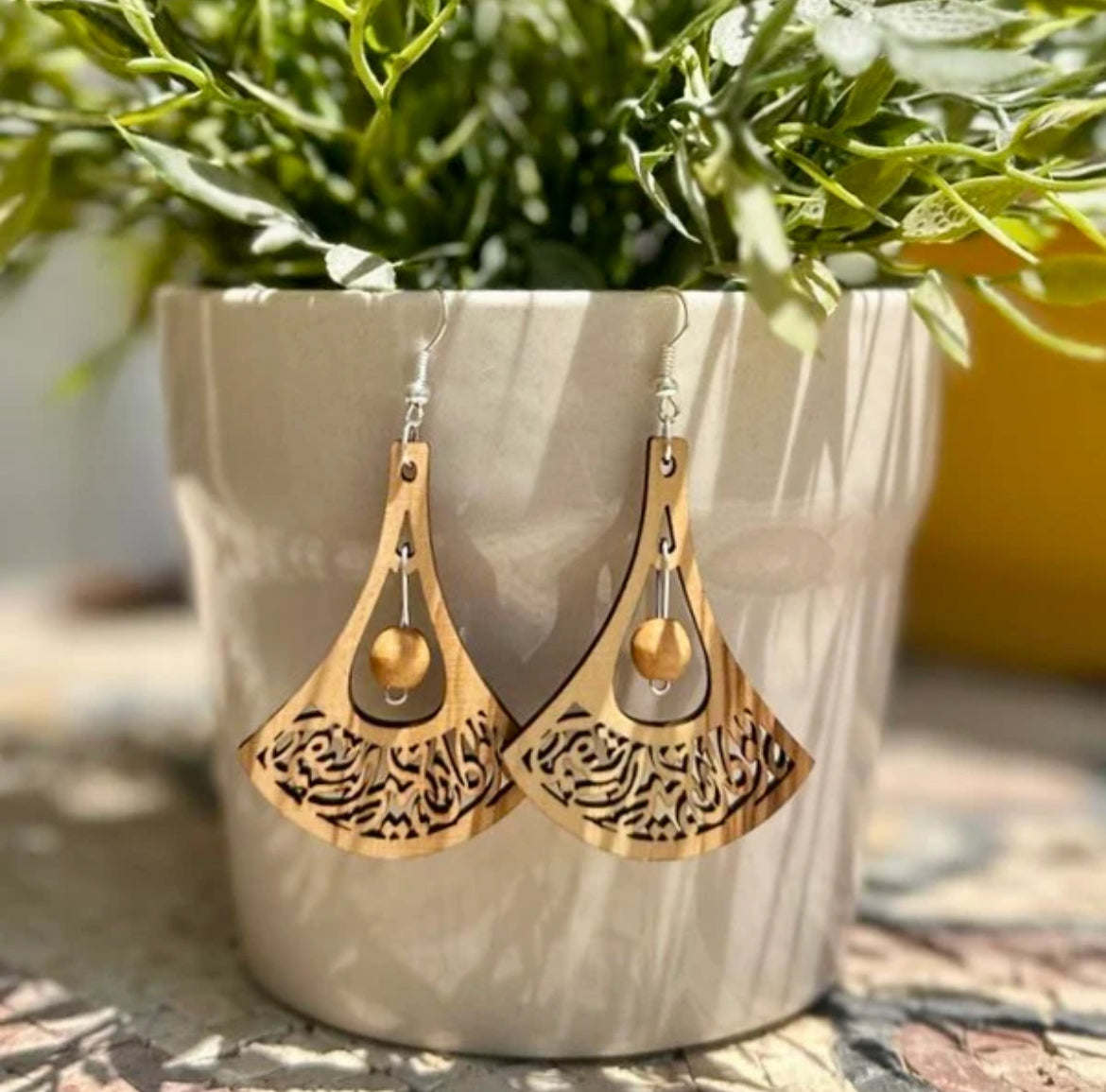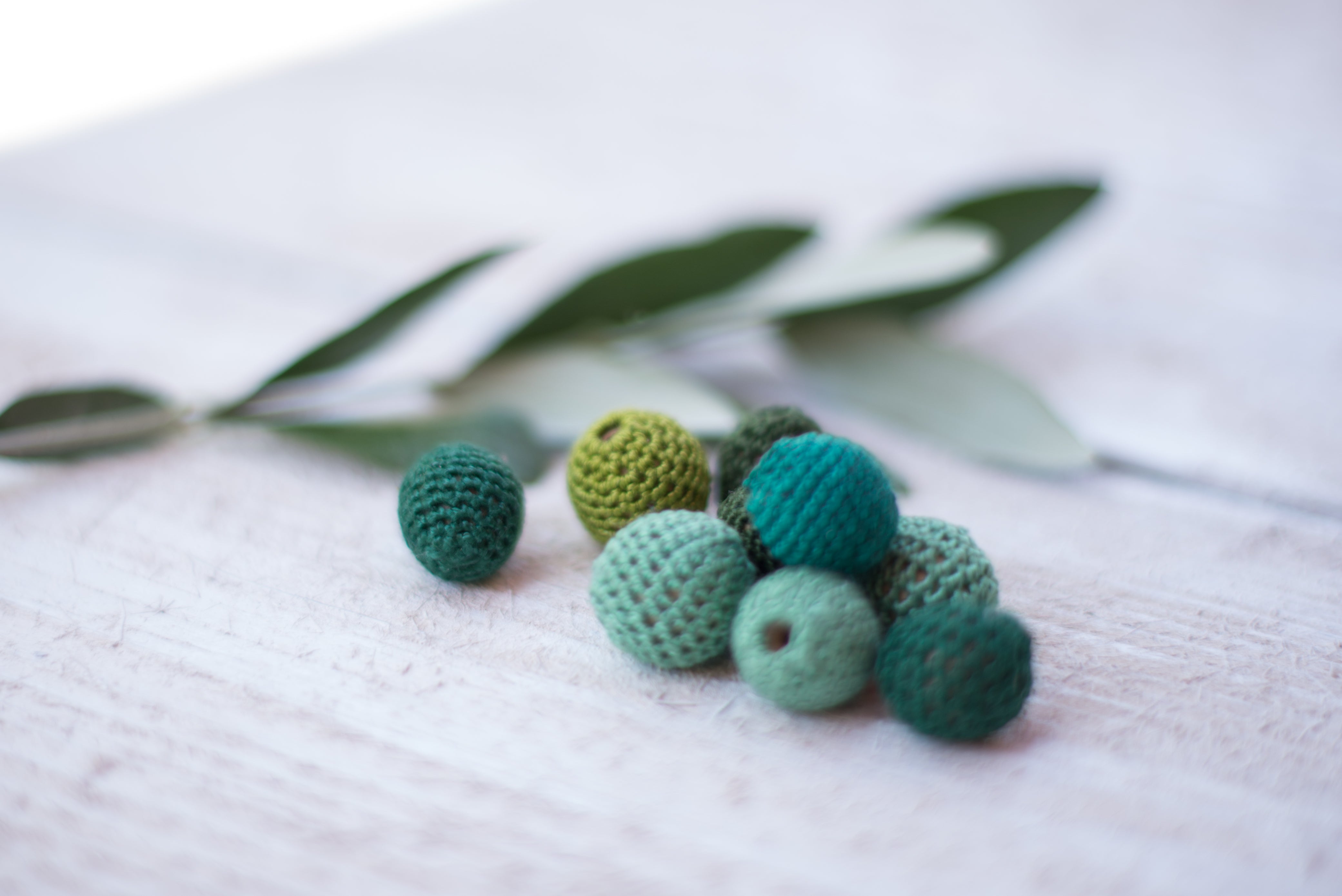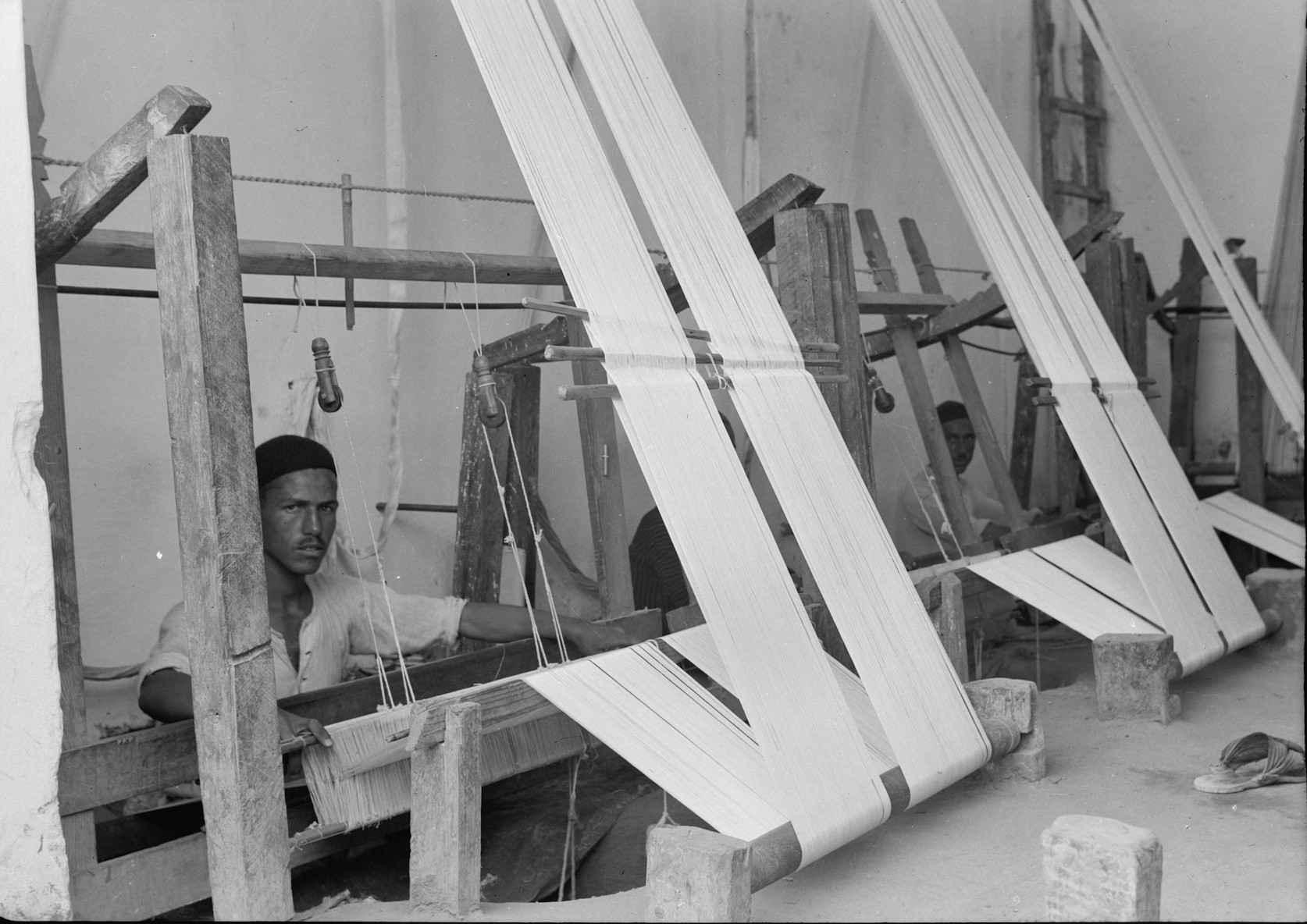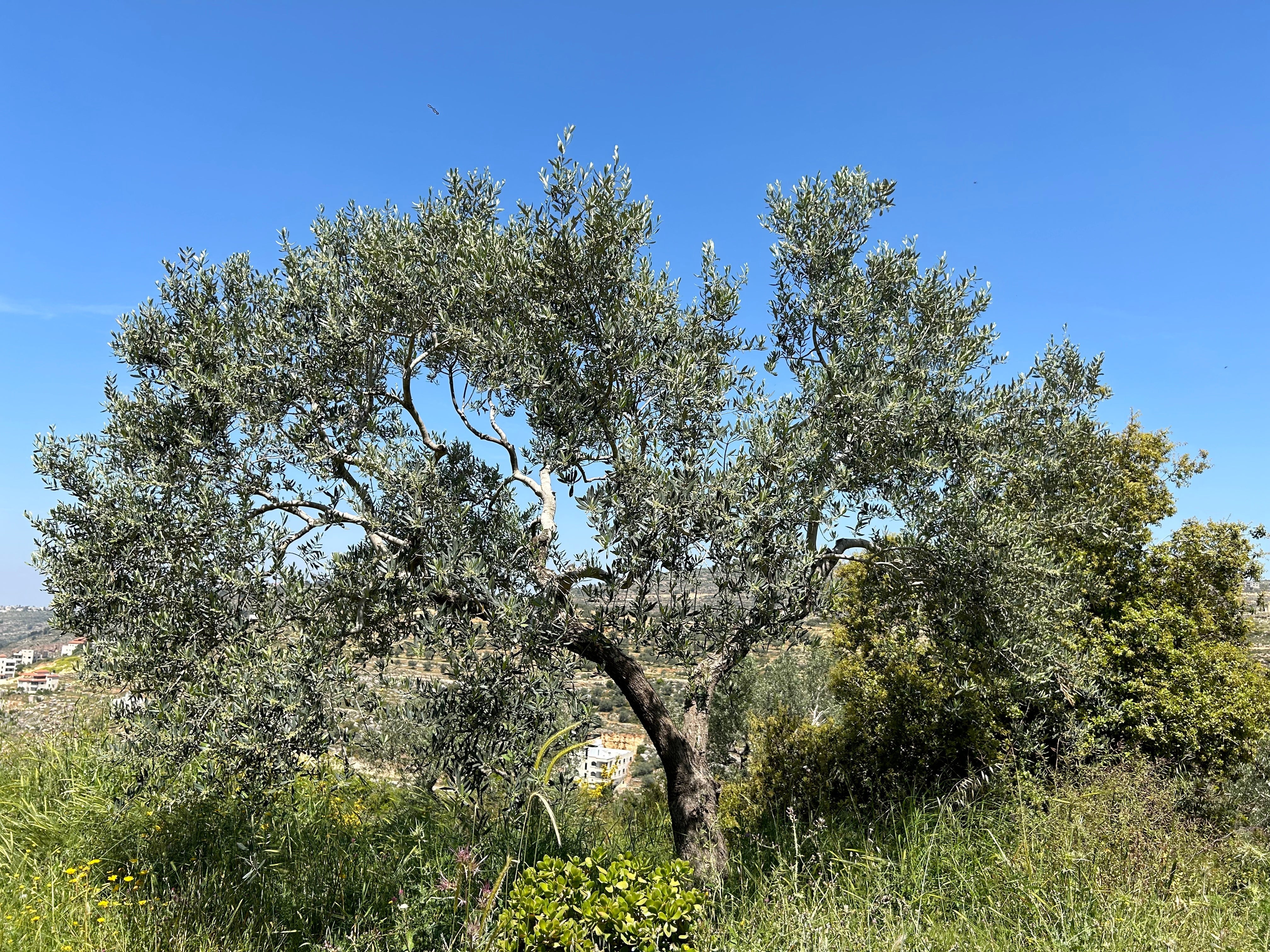
Meet Our Artisans: Nadya Hazbunova
At Handmade Palestine, our Meet Our Artisans series celebrates the incredible makers who keep Palestinian craft alive. This month, we are proud to introduce you to Nadya Hazbunova, a fashion and jewelry designer from Bethlehem whose work brings together Arabic calligraphy, olive wood, and Palestinian heritage with contemporary design.
What is your name?
My name is Nadya Hazbunova, and I am from Bethlehem, Palestine, the heart of traditional Palestinian crafts. My mother is Czech, so my work is always infused with a European aesthetic as well—reflecting the blend of cultures that shape my identity.

What kind of craft do you make?
I design both fashion and jewelry. In my jewelry, I work primarily with Arabic calligraphy and olive wood, while my fashion designs highlight traditional Palestinian embroidery and hand techniques. Every piece is a meeting point between Palestinian heritage and modern design.

How did you learn your craft?
My journey began with a love for Palestinian heritage, calligraphy, and design. I studied fashion and design, but my inspiration comes from community traditions and my search to understand identity and belonging. For me, this is a continuation of Palestinian craft heritage—transforming embroidery, calligraphy, and natural local materials into wearable art.
How long have you been doing this work?
I’ve been dedicated to my craft for more than 13 years, growing both as a designer and as someone deeply committed to promoting Palestinian handmade traditions.
Is this a family business? Do you work with others in your community?
While I started my brand myself, it is truly community-centered. I collaborate with local woodworkers, embroiderers, calligraphers, and women’s cooperatives. Without my family’s support and the artisans I work with, my pieces would not exist. Crafting for me is not just about making jewelry or fashion—it’s about sustaining livelihoods, empowering women, and carrying forward Palestinian heritage.
What do you love most about making your craft?
I love storytelling. Each design is infused with meaning—whether it’s Arabic calligraphy that carries words of love, hope, and resistance, or olive wood that grounds us in our connection to the land. I love that these pieces travel the world, allowing people everywhere to carry a piece of Palestine with them.
What does your craft mean to you personally?
It’s identity, resistance, and heritage. Crafting is how I preserve culture, tell stories, and protect traditions passed down for generations. Every piece I make is a small act of resilience.
Tell us about where you craft.
I craft in Bethlehem, a city that has always been a crossroads of culture and tradition. Bethlehem is known for embroidery, mother-of-pearl, and especially olive wood carving. Working here connects me to centuries of artisanal heritage, even though the challenges of restrictions and limited resources are constant. Still, it remains a hub of creativity and resilience.
HERITAGE, TRADITION & CONNECTION TO PALESTINE
Why is it important for you to continue traditional craft in Palestine?
Because craft is living heritage. In Palestine, handmade work is not just decoration—it’s a way of keeping memory alive. By creating and collaborating with artisans, we resist cultural erasure, support women, and keep traditions vibrant in a world where fast fashion threatens slow, meaningful craft.
Does your work reflect Palestinian history, land, or culture?
Absolutely. I use Arabic calligraphy inspired by Palestinian poets and writers, and olive wood that symbolizes steadfastness and belonging. Each piece bridges past and present, reflecting both resilience and beauty.
Are there traditional materials or stories in your work?
Yes, olive wood itself carries deep meaning—it represents continuity, peace, and rootedness. The calligraphy I choose—such as words like “freedom,” “love,” and “Palestine”—becomes both art and storytelling.
How do you feel when people around the world wear your pieces?
It fills me with pride and hope. When someone wears my jewelry, they carry Palestine with them. Each supporter helps preserve heritage and opens conversations about Palestinian identity every time someone asks about their piece.
THE CRAFTING PROCESS
Can you describe how you create your work?
It usually begins with sketching a design inspired by a word or quote that is meaningful to me. Then I prepare it for production—whether in olive wood or silver. Local artisans help cut, carve, polish, and refine the materials. Each piece is finished carefully, balancing beauty with meaning.

What materials do you use?
I primarily use Palestinian olive wood, along with silver, brass, and gold plating. Sometimes I incorporate fabric or embroidery. All of this comes from local artisans, family workshops, and traditional suppliers.


Are there special techniques or symbols with cultural meaning?
Yes—Arabic calligraphy is central to my designs, transforming words into art. Olive wood carving is deeply tied to Bethlehem’s identity, and incorporating Palestinian literature in wearable designs is the essence of my work.
How long does it take to make one piece?
It depends on complexity, but most pieces take several days to develop and finish. From sketch to final product, a new design often takes three weeks to complete as I refine prototypes and test durability.
Has your style changed over the years?
Yes, I’ve grown along with my customers. Their feedback often inspires new directions—like expanding into silver pieces alongside wood. Each collection reflects my own journey and identity.
WORKING IN PALESTINE
What are some challenges you face as an artisan?
There are many. Movement restrictions limit access to materials and international markets. Importing tools is difficult, exporting goods is costly, and even online payments are restricted. The economic instability in Palestine makes it very hard to sustain a business without international support.
How has the political situation affected your work?
The war in Gaza and ongoing restrictions deeply impact artisans. Materials are scarce, olive wood prices have risen, and communication with collaborators in Gaza is difficult. The uncertainty makes it hard to plan for the future, but I continue to sustain my business alongside my day job, ensuring I can keep this work alive.
What keeps you going despite these difficulties?
The knowledge that my work carries Palestine’s story into the world. Customers who support and wear my designs give me strength. This work sustains families, supports women, and preserves our cultural identity. That mission keeps me going.
What are your hopes for the future?
I dream of seeing Palestinian artisans thrive, not just survive. I want the world to recognize the beauty and cultural value of our crafts. I hope for a stable future for my family and a strong artisan community where our children grow up proud of their heritage.
Explore Nadya’s New Designs
We are honored to share two of Nadya’s newest creations, handcrafted in Bethlehem from Palestinian olive wood and inscribed with Arabic calligraphy:
Darwish Quote in Arabic Calligraphy on Olive Wood Earrings – a wearable tribute to Mahmoud Darwish’s poetry, uniting Palestinian literature with timeless design.
Arabic Calligraphy on Olive Wood Dangling Earrings – elegant earrings that carry words of heritage and hope, carved from the wood of ancient olive trees.

Through her work, Nadya Hazbunova reminds us that craft is not only beauty, but also heritage, resistance, and resilience. By supporting her jewelry and fashion, you are helping to preserve centuries-old Palestinian traditions, sustain families, and carry forward a story that cannot be silenced.
👉 Explore Nadya’s full collection here.








Leave a comment
This site is protected by hCaptcha and the hCaptcha Privacy Policy and Terms of Service apply.